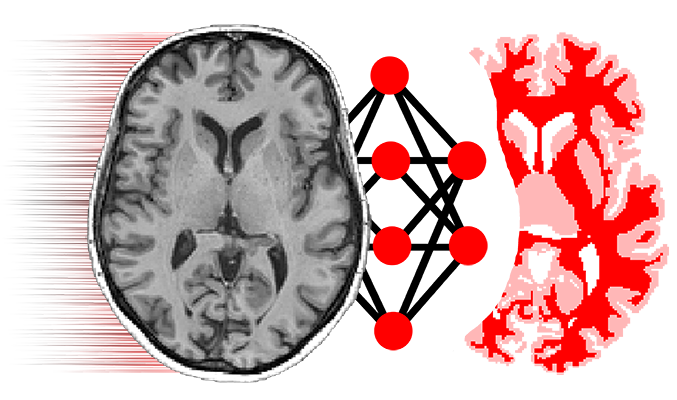Source code for niftynet.engine.windows_aggregator_identity
# -*- coding: utf-8 -*-
"""
windows aggregator saves each item in a batch output as an image.
"""
from __future__ import absolute_import, print_function, division
import os
import niftynet.io.misc_io as misc_io
from niftynet.engine.windows_aggregator_base import ImageWindowsAggregator
[docs]class WindowAsImageAggregator(ImageWindowsAggregator):
"""
This class saves each item in a batch output to images,
the output filenames can be defined in three ways:
1. location is None (input image from a random distribution):
a uuid is generated as output filename.
2. the length of the location array is 2:
(indicates output image is from an
interpolation of two input images):
- ``location[batch_id, 0]`` is used as a ``base_name``,
- ``location[batch_id, 0]`` is used as a ``relative_id``
output file name is ``"{}_{}"%(base_name, relative_id)``.
3. the length of the location array is greater than 2:
(indicates output image is from single input image)
``location[batch_id, 0]`` is used as the file name
"""
def __init__(self,
image_reader=None,
output_path=os.path.join('.', 'output'),
postfix='_niftynet_generated'):
ImageWindowsAggregator.__init__(
self, image_reader=image_reader, output_path=output_path)
self.output_path = os.path.abspath(output_path)
self.inferred_csv = os.path.join(self.output_path, 'inferred.csv')
self.output_id = {'base_name': None, 'relative_id': 0}
self.postfix = postfix
if os.path.exists(self.inferred_csv):
os.remove(self.inferred_csv)
def _decode_subject_name(self, location=None):
if self.reader:
image_id = int(location)
return self.reader.get_subject_id(image_id)
import uuid
return str(uuid.uuid4())
[docs] def decode_batch(self, window, location=None):
if location is not None:
n_samples = location.shape[0]
for batch_id in range(n_samples):
if self._is_stopping_signal(location[batch_id]):
return False
filename = self._decode_subject_name(location[batch_id, 0])
# if base file name changed, reset relative name index
if filename != self.output_id['base_name']:
self.output_id['base_name'] = filename
self.output_id['relative_id'] = 0
# when location has two component, the name should
# be constructed as a composite of two input filenames
if len(location[batch_id]) == 2:
output_name = '{}_{}'.format(
self.output_id['base_name'],
self._decode_subject_name(location[batch_id, 1]))
else:
output_name = self.output_id['base_name']
self._save_current_image(self.output_id['relative_id'],
output_name,
window[batch_id, ...])
self.output_id['relative_id'] += 1
return True
n_samples = window.shape[0]
for batch_id in range(n_samples):
filename = self._decode_subject_name()
self._save_current_image(
batch_id, filename, window[batch_id, ...])
return False
def _save_current_image(self, idx, filename, image):
if image is None:
return
uniq_name = "{}_{}{}.nii.gz".format(idx, filename, self.postfix)
misc_io.save_data_array(self.output_path, uniq_name, image, None)
with open(self.inferred_csv, 'a') as csv_file:
filename = os.path.join(self.output_path, filename)
csv_file.write('{},{}\n'.format(idx, uniq_name))
return
